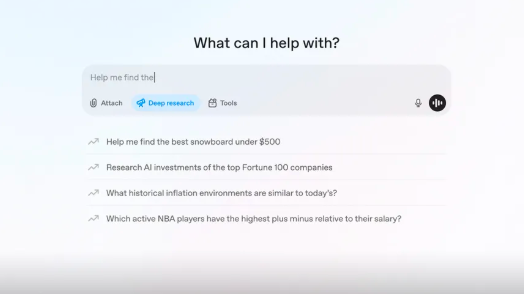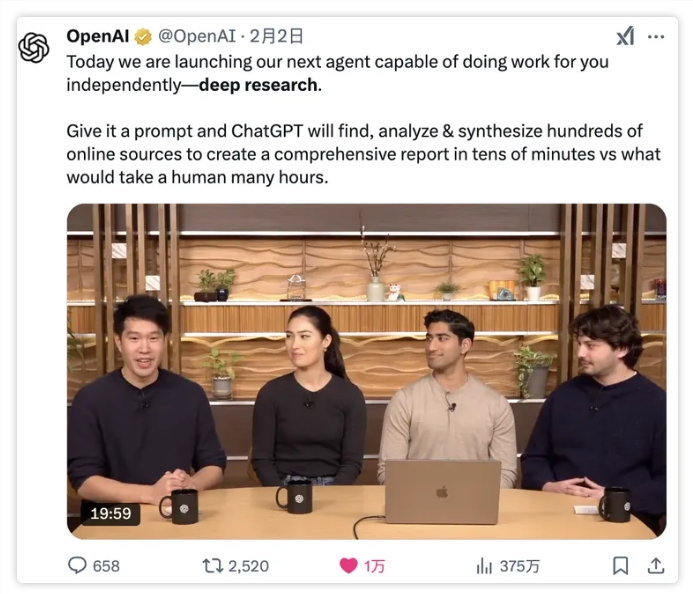OpenAI has released the new AI assistant Deep Research, which aims to automate complex multi-step online research tasks. It can quickly search, analyze and integrate hundreds of information sources, generate professional reports, and reduce tasks that originally took hours to about 30 minutes. Deep Research features similar to Google's search engine and DeepSeek's research assistant, but it outperforms DeepSeek in technical benchmarks.
After the recently launched O3-Mini, OpenAI brought a new product-DEEP Research, which is a AI assistant designed for automated complex online multi-step research tasks. Its function has obvious similarities with the research assistant of Google's search engine and Deepseek. Users only need to enter prompts. Deep Research can quickly search, analyze and integrate hundreds of information sources on the Internet. In the end, a professional level is formed. Comprehensive report. Such capabilities make the research tasks that can be completed for several hours to complete, shorten to about 30 minutes.

Deep Research's target users cover many professional fields such as finance, science, policies and engineering. Users can use it to interpret financial reports, analyze experimental data, and even study legal cases. In the face of the choice of high -value products such as cars and electrical appliances, Deep Research can also provide personalized consumption suggestions. This tool relies on the optimized version of the O3 model and uses end -to -end enhancement learning technology to perform cross -modular search, understand and analyze text, pictures and PDF files.

It is very simple to use Deep Research. Users only need to select "Deep Research" mode on the ChatGPT interface, enter research needs, and even upload reference materials. The entire research process will be displayed in the sidebar in real time, and the user will receive a notice after the research is completed. In the future update, Deep Research will also support more charts and visual content display to enhance the user experience.
However, the launch of Deep Research is not without controversy, especially its high similarity with Deepseek has made it ridiculed on social media. Nevertheless, OpenAI has performed well in the technical benchmark test through the DEEP Research, including HLE, GAIA and Expert-Level Tasks' test results are higher than Deepseek. These tests not only test the performance of AI in various disciplines, but also test their ability to deal with real problems.
Although Deep Research shows powerful functions, Openai also acknowledges that there are still some limitations, such as information accuracy and flaws in report formats. As the amount of usage increases, the OpenAI plan has continuously optimized the model and strives to solve these problems. Users are full of expectations for Deep Research, especially for more features that they may introduce in the future.
Although Deep Research has some limitations, its efficient research capabilities and excellent performance in technical benchmarks make it a promising AI tool. OpenAI's commitment to continuous improvement also makes people look forward to its future development.